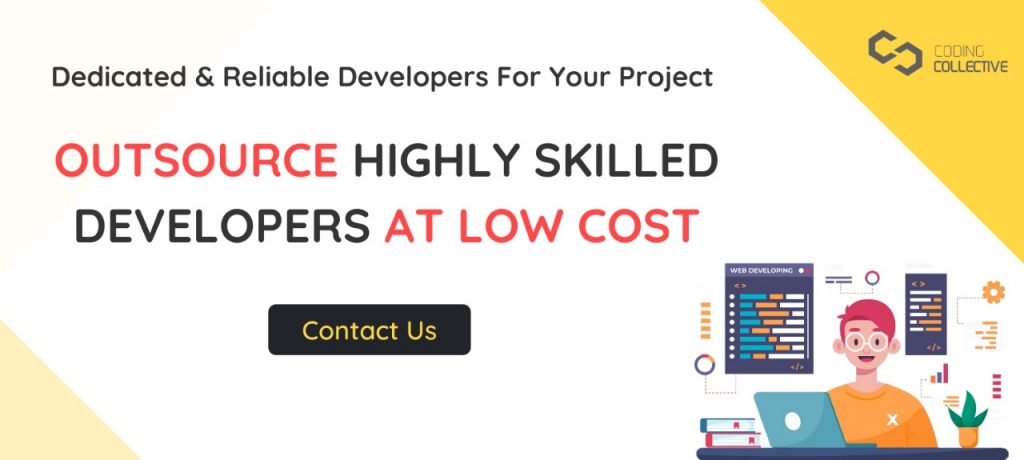
A. What is a full stack developer?
As an active member in the tech industry, you may have heard the term ‘Full Stack Developer’ bandied about multiple times, in multiple scenarios. Especially during these times, when work-from-home culture is on the rise and companies are looking to hire talent across the globe.
So, what is meant by the term ‘full-stack developer’?
In simple terms, a full-stack developer is a programmer or an engineer who can work on both the front end and back end of a web application. The front end of a web application is the portion that is visible and accessible to the user. Everything that is seen on a web page – the logo, search bar, access buttons, colors, and the overall layout is created by a front-end developer. This is why front-end developers must be aware of user experience and design the user interactions according to the target client. Basically, they are responsible for the look and feel of the website – across all channels, platforms, and devices. Back-end development of a web application refers to the server-side of the application that is not visible to the user. Back-end developers focus on the logic of the application, creating servers, and functioning of the databases and APIs.
Depending on the project and the client’s needs, a full stack developer may work on a native application stack, a mobile stack, or a web stack – as required. Due to their knowledge about both front-end and back-end development of a web application, they can work on a complete project single-headedly and keep the progress in check. With their knowledge of the user interface, they can also assist back-end developers in completing their tasks.

B. What is a software developer/engineer?
Now let’s see, who is a software developer/engineer.
Software engineers also called software developers, create software for computers and applications. If you’re an analytical thinker who enjoys solving problems and making digital products easier to use, you may find a career as a software engineer rewarding. Software engineers are experts in their chosen field. Their extensive knowledge helps them plan projects and develop integrated solutions that solve a particular issue with applications. While a full stack developer focuses on web applications, a software engineer focuses on native apps that you might download on your system. The term software engineer is comprehensive as well, and it could mean a C++ specialist as well as an embedded engineer. In most cases, software engineers know the architecture of the system and determine the same for their team members.
Many software engineers are specialists, and they focus on one particular aspect of software development.
C. Why are they needed?
Taking about Full-stack developers and Software developers, the obvious question is raised: why are they both needed? Full-stack development and software development is often inclusive. While the full stack developer deals explicitly with the handling of databases, client-side development, and servers, a software developer covers many specific areas of development that require specialization in a particular field or language.
- Full stack developer: as they have proficiency in working with both sides of web development, full stack developers handle quite a bit of responsibility in a site or application’s cohesive development and maintenance. Full stack developers commonly oversee front-end architecture and back-end programming; they also perform cross-platform optimization for a variety of devices. Beyond their technical duties, developers are also responsible for collaborative planning with other departments. They are also regularly given managerial responsibilities in leading the broader development team.
- Software developer/engineer: much of the actual software development happens through coding, and software developers with their expert knowledge, oversee that. Depending on the project, a software developer will analyze the needs of the user and then create, test, and develop software that will solve a problem for the intended audience. After mapping out the design, creating flowcharts, and drafting out each step of the process, developers will instruct programmers on how to write the code for the software. Their job roles also include making a comprehensive map of the software so that it can be easily seen and referred to for future upgrades, and enhancements, testing the software and collaborating with other computer specialists to make sure the software is functioning as intended.
D. What are their professional domain and responsibilities?
While the job roles of both full stack developers and software developers are pretty similar and inclusive in certain functions, there are a few differences in their responsibilities and the domain in which they function. Here are a few points highlighted:
| Full-Stack Developer | Software Developer |
| They are knowledgeable in all the steps of web application development. They can work on both front-end and back-end development. | All the software applications installed on a device are a product of software engineers. They code these applications, test them and ensure that the applications run smoothly. With their specialized expertise in their fields, a software engineer is responsible for a particular aspect of a project. |
| They can access any aspect of a web application without facing any issues and can assist their teammates in solving issues related to their fields. | They are only responsible for a particular aspect of an application, their accessibility is quite limited compared to a full stack developer. |
| Full-stack developers create fast prototype designs for the product. They follow a holistic approach to the development of a solution. | Software engineers build a specific step of an application. In most cases, they are responsible for a comprehensive aspect of an application. |
| Full-stack developers need to be familiar with databases, server management as well as system engineering. | Software engineers are well-versed in multiple programming languages |
| They work on web applications that are accessible to anyone using the web browser. | They build native apps which are installed on a device |

E. Career path as Full Stack developer and Software developer
Due to their extensive knowledge in several aspects of web development, full-stack developers are in huge demand in the tech industry. Because of their diverse skillset, full-stack developers can also work as entrepreneurs independently. To be a full stack developer, you do not necessarily require a tech degree – you can learn front-end development, back-end development, and programming languages separately and over a course of time to start off your career. However, there are two few skills that will help you in your career as a full-stack developer. These are:
- Knowledge about web architecture – planning, design aspects of functional and visuals, user interface experience
- Critical thinking and problem-solving in the greater picture
As new technologies in web development keep appearing in the market, the role of a full stack developer becomes more difficult. A full-stack developer has to keep up with all the latest developments and continually learn new skills as they arrive in the market.
As a full-stack developer, you can work in multiple verticals across several industries. In finance and capital markets where businesses work on specialized investment banking and other financial projects, asset servicing, and cyber security, there is a demand for full-stack developers. Due to their knowledge and skillset in both front-end and back-end development, full-stack developers are ideal to handle such sensitive projects. Industry leaders like Bosch, Grab, Singtel, and DBS Bank always hire full-stack developers in their various positions.
Successful software developers, on the other hand, are experts in their specialized fields and know how to use the right programming languages when on which platforms and architectures to develop everything from computer games to network control systems. In addition to building their own systems, software engineers also test, improve, and maintain software built by other engineers. To be a software developer, a degree in computer-related fields (such as computer science) is usually desirable and required. Compared to the full-stack developers, the entry barrier is comparatively bigger in this field. Software development is a creative process in many ways. As a developer, you must have an intrinsic understanding of the workings of coding and how to create complex functions using simple formats. Software developers also require technical expertise in multiple programming languages like C++, HTML, etc. Additionally, skills that are desirable are:
- Analytical and strategic thinking to solve any problem
- Collaborative efforts to be able to work in a team
Choosing a career as a software developer gives you opportunities to work in many different industries and fields, as all businesses use the software. Whether you enjoy finances, entertainment, sports, real estate, or some other industry, there’s a good chance there are jobs for software engineers. If you like solving puzzles and have strong analytical skills, a career as a software developer will be both fulfilling and fun.
With modern life dependent on smart solutions, which are run by intricate and specialized software, there is a rise in demand for software developers as well. With trending industries like AI, robotics, smart home, healthcare, and fashion retail on the rise, they are depending on software developers to meet the specific requirements of their clients. Global leaders like Google, Adobe, Microsoft, NVIDIA, and Amazon are always on the lookout for talent in software development.
